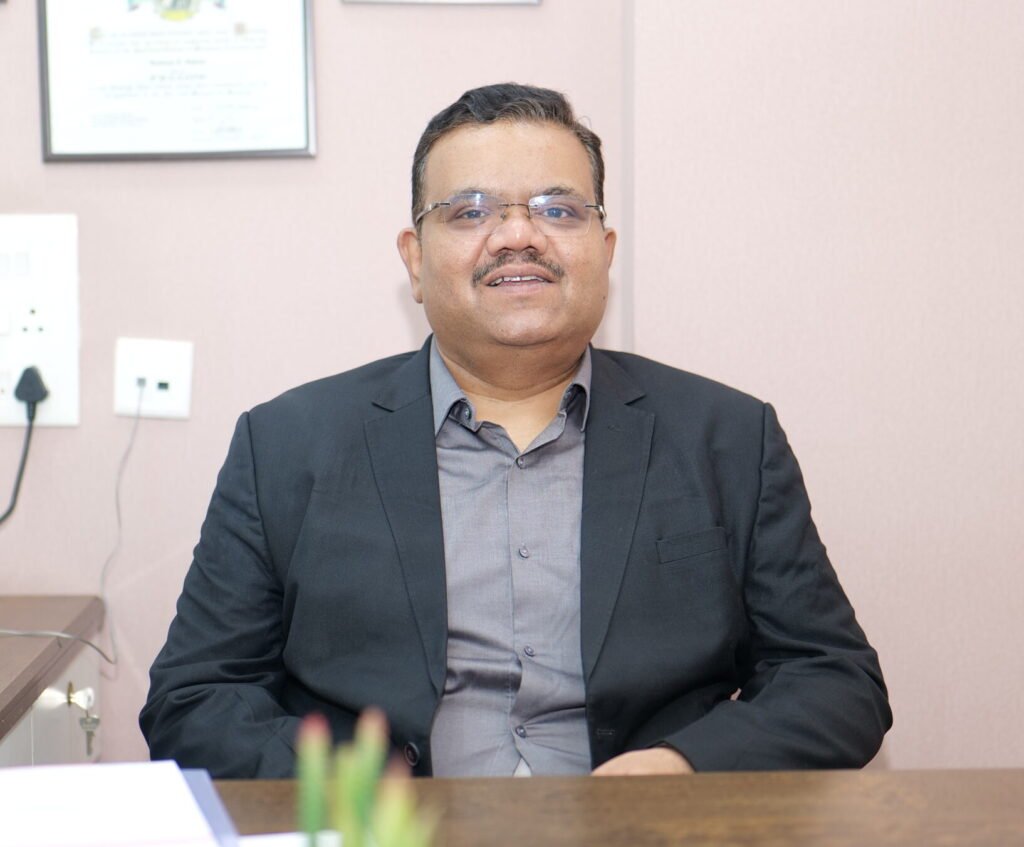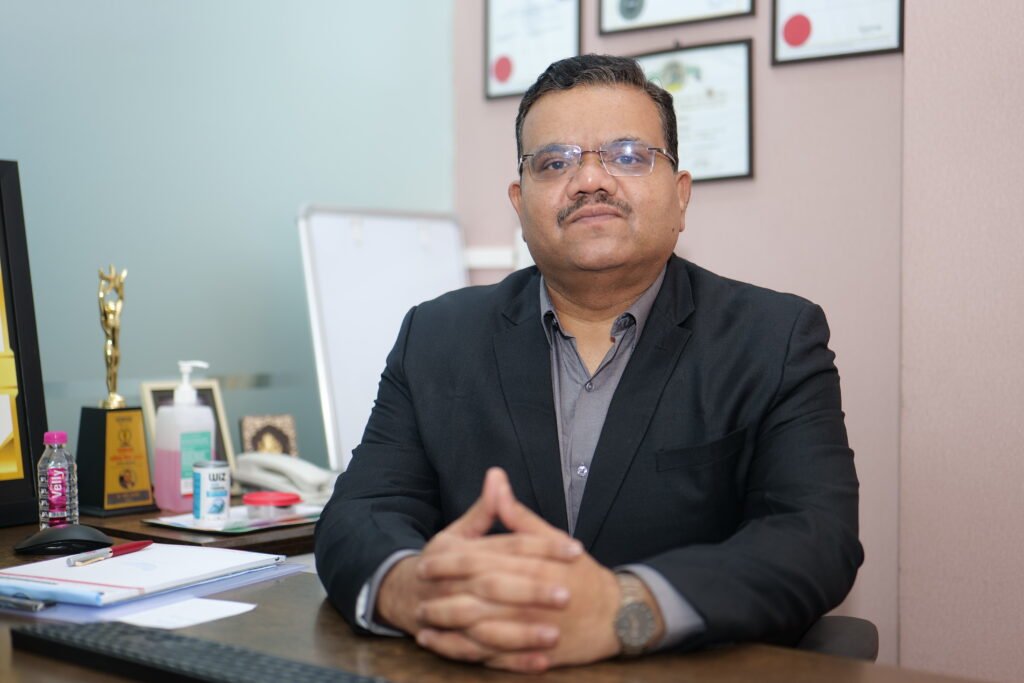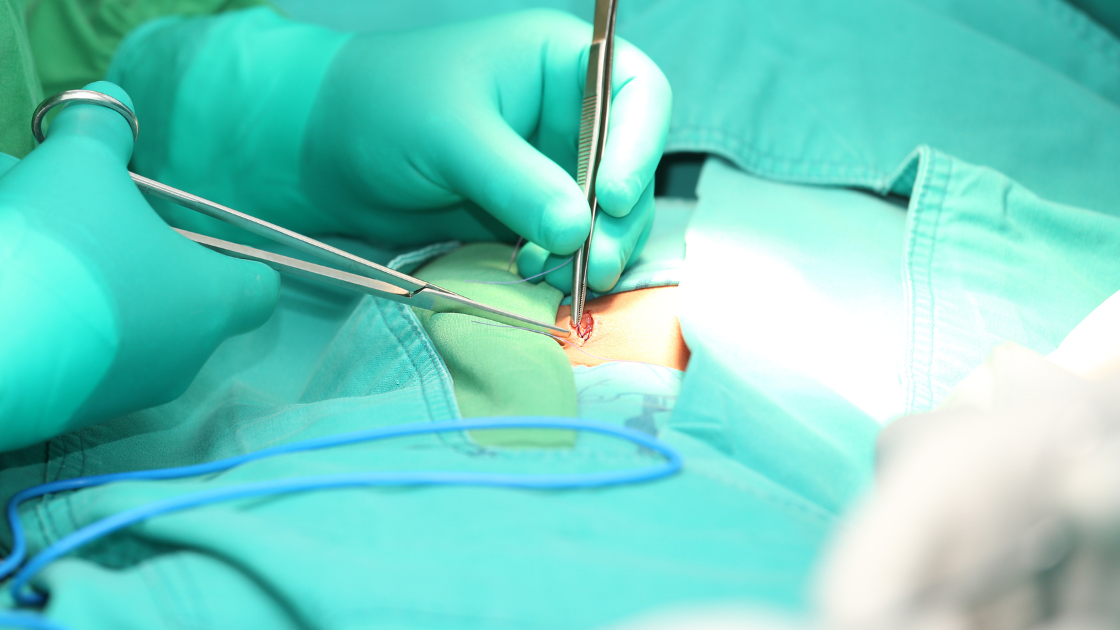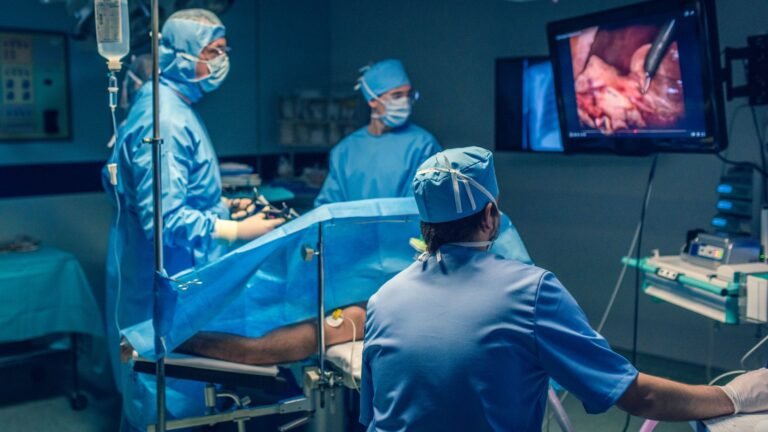







Experiencing discomfort due to a hernia? It’s time to consider hernia surgery in Nashik, a safe and effective solution to alleviate pain and prevent future complications. Hernias, occurring when internal organs push through a gap in the abdominal wall, can lead to significant discomfort and potential health risks if left untreated. Hernia surgery, especially when performed using minimally invasive techniques, offers a reliable method for repair, ensuring a quicker recovery and reducing the chance of recurrence. food. This tiny organ can give you a big problem if it ceases to work correctly due to the accumulation of stones (calculi) or some biomedical abnormalities.
We are experts in hernia surgery in Nashik, providing a pathway to alleviate discomfort and enhance your well-being.
Our center is acclaimed for featuring the leading hernia treatment specialists in Nashik, guaranteeing exceptional care and proficiency. We utilize contemporary hernia repair methods, focusing on minimally invasive techniques, to promise swift healing and reduced pain. Choosing hernia surgery in Nashik with us places you under the care of esteemed hernia experts.

If you suffer from…

Surgery is the most common treatment for a hernia. With a hernia, an organ pushes through the muscle or tissue wall that holds it. Most hernias form in your abdomen or groin. Hernia surgery allows your surgeon to push the organ and herniated tissue back into place and reinforce the barrier holding it there using stitches or surgical mesh.
Dr. Sabnis and his team excel in providing fast, efficient hernia care, ensuring a smooth experience from the first call to post-surgery recovery. Our laparoscopic hernia surgeries, performed under general anesthesia using carbon dioxide gas, are safe and minimize discomfort. This approach, ideal for various hernia types, involves repairing hernias with a synthetic mesh, promising patients a speedy, nearly pain-free recovery. Often, patients return home the same or next day, ready to resume their lives with ease. Trust us for leading hernia treatment and swift healing.

Hernia surgery, also known as herniorrhaphy or hernioplasty, is a procedure to repair hernias of the abdomen, groin, or other areas where internal organs or tissues push through a weak spot or tear in the muscle or connective tissue. The process typically involves the following steps:
Pre-Surgery Evaluation: Patients undergo a medical evaluation including physical exams and possibly imaging tests (like ultrasound, CT scan, or MRI) to determine the type and extent of the hernia.
Anesthesia: Hernia surgery is performed under general, spinal, or local anesthesia, depending on the hernia’s location, size, the patient’s overall health, and the surgical approach.
Surgical Technique:
Open Hernia Repair: In this traditional method, the surgeon makes an incision near the hernia site, pushes the protruding organ or tissue back into place, and then sews the weakened area shut. Often, a synthetic mesh (hernioplasty) is placed in the area to provide additional support.
Laparoscopic Hernia Repair: A minimally invasive approach where the surgeon makes several small incisions in the abdomen. A laparoscope (a thin tube with a camera and light) and surgical tools are inserted through these incisions. The surgeon then repairs the hernia from inside the abdomen, usually placing a synthetic mesh over the weakened area to reinforce it. This method typically results in less pain and quicker recovery compared to open surgery.
Repairing the Hernia: Regardless of the technique, the goal is to repair the hernia defect by securing the protruding organs or tissues back into their proper place and reinforcing the weakened area to prevent recurrence.
Closure: The incisions are closed with sutures, staples, or surgical glue, depending on the type of surgery performed.
Post-Surgery Recovery: Patients may spend a few hours in a recovery room post-surgery for observation. Laparoscopic surgery often allows for a quicker recovery and shorter hospital stay, possibly going home the same day. Open surgery may require a longer recovery period. Patients are advised on activity restrictions and wound care before discharge.
Follow-Up and Rehabilitation: Follow-up appointments are scheduled to monitor healing. Patients are advised on gradually increasing their activity level and may be given specific exercises to strengthen the abdominal area to prevent future hernias.
The National Institute for Health and Care Excellence (NICE), which assesses medical treatments for the NHS, says both keyhole and open surgery for hernias are safe and work well.
With keyhole surgery, there’s usually less pain after the operation because the cuts are smaller. There’s also less muscle damage and the small cuts can be closed with glue.
Keyhole surgery tends to have a quicker recovery time in people who:
Have been treated before and the hernia has come back (recurrent hernia)
Have hernias on both sides at the same time (bilateral hernias)
But the risk of serious complications, such as the surgeon accidentally damaging the bowel, is higher with keyhole surgery than with open surgery.
The risk of your hernia returning is similar after both operations.
Discuss the advantages and disadvantages of keyhole and open surgery with your surgeon before deciding on the most appropriate treatment.
Deciding which technique to use :
The choice of technique for inguinal hernia repair largely depends on:
Your general health – older people or people in bad health maybe too weak or frail to safely have a general anesthetic, so open surgery using local anesthetic may be advised
The experience of your surgeon – open surgery is more common than keyhole surgery, and not all surgeons have enough experience in keyhole techniques.

Dr. Sandeep Sabnis, a certified gastro surgeon in Nashik, excels in advanced laparoscopy and gastrointestinal surgery with nine years of experience. Specializing in liver transplantation and minimally invasive procedures, he offers cutting-edge treatments including bariatric surgeries and laparoscopic hernia repairs, ensuring high-quality patient care.
Begin your path to improved wellness with Dr. Sandeep Sabnis, the foremost hernia surgeon in Nashik. Discover state-of-the-art, minimally invasive hernia repair procedures and experience rapid healing, customized for your condition. Say goodbye to hernia discomfort—reach out to us today for specialized treatment. Let’s restore your comfort and health side by side!
A hernia cannot ‘heal’ itself through medicine or exercises, ie the tissue around the opening cannot grow and close the opening by itself. Most hernia cases require surgery. If not immediately, sometime in the future.
Yes, all hernia treatments are covered under medical insurance. Please contact our medical counsellor for hassle free insurance approvals.
Laparoscopic surgeries are in general quite painless though this may vary from patient to patient. Our surgeons & anesthetists will ensure that you are kept as pain-free as possible during surgery.
In most cases this varies from 3-4 days. This usually depends on the type of hernia being treated, its size and the technique used to treat it.
We treat all types of hernia be it inguinal, umbilical, incisional, femoral, hiatal, sports, epigastric, etc.
Yes. All hernia patients go through an exercise program 6 weeks after surgery to restore muscle tone, prevent muscle atrophy and prevent weight gain.

Explore Surgical Care with Dr. Sabnis in Nashik. Schedule your personalized consultation today and embark on a journey to seamless recovery.